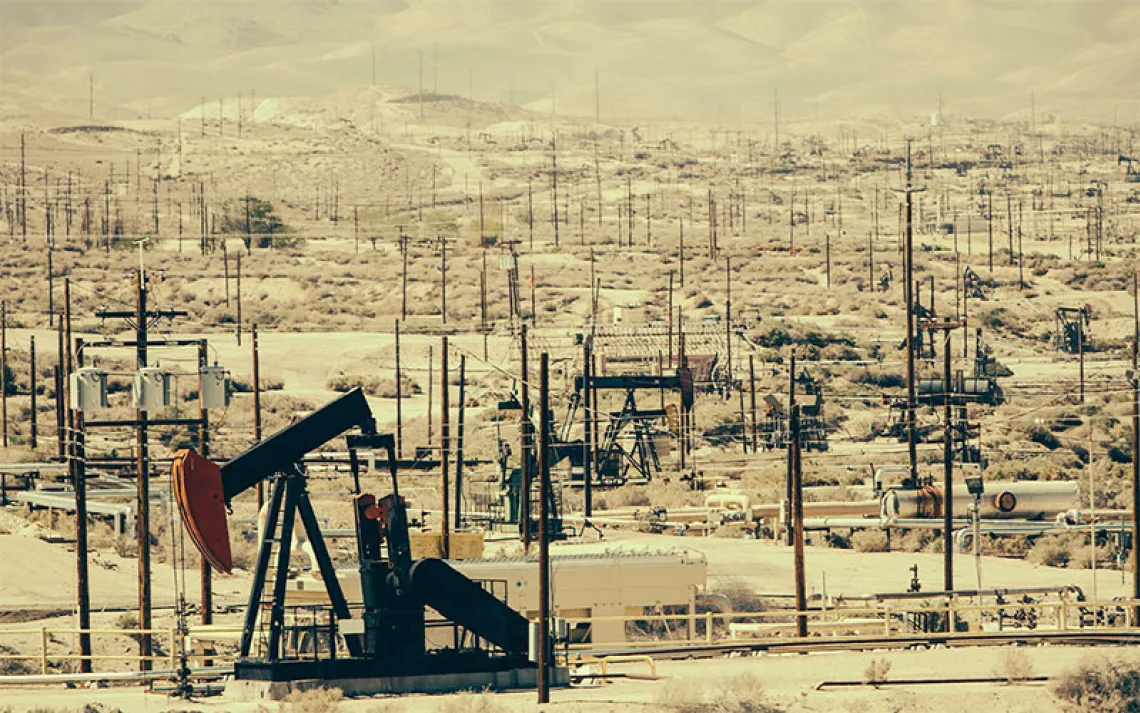How the Environmental Movement Can Go Beyond NIMBY-ism
Dirty and dangerous industries shouldn't be in anyone's backyard

Photo by Mike Belleme
You've probably heard the phrase before: Not in my backyard. These days, to call someone a NIMBY or to accuse someone of NIMBYism is an insult of sorts. The term appears to have been coined in the mid-1970s during a campaign to prevent a nuclear power plant from being constructed in Seabrook, New Hampshire. Yet what started as a broad call to arms soon soured into a narrower perspective characterized by the whims of privilege and power.
All too often, when you hear someone say "not in my backyard," the emphasis is on the possessive my. The practical result of that self-centered focus is that the controversial project in question—whether a nuclear plant, a waste dump, or a pipeline—often gets located somewhere else, in somebody else's community, and that usually means in a poorer, and often people-of-color-dominated, part of town. Being a NIMBY can be seen as putting one's individual interests (and property tax values) above the collective interest.
I wonder, though, if there's not also a kernel of wisdom in the NIMBY instinct. After all, the environmental movement has always been fueled by a kind of righteous parochialism—the love of a particular mountain or a specific river that sparks a battle to protect a unique place. Perhaps what we need, then, is a NIMBYism that is imbued with solidarity: If I'm going to fight against a chemical plant in my backyard, I should work to make sure that it's not located in your backyard either.
That seems to be the lesson from Grant Township, Pennsylvania, a tiny community that has fought for years to stop a proposed fracking-related wastewater injection well. As Aaron Skirboll reports ("Nevertheless, They Persisted"), when the Grant Township residents launched their campaign in 2014, the fight was purely local. Folks didn't want to take the risk of having the wastewater contaminate their aquifer. "This is about saving ourselves, saving our water" is how area resident Stacy Long put it. In the course of the fight, the residents found themselves campaigning for bigger ideals: a community's right to say no to dirty fossil fuel projects and to codify the rights of wild nature in the town charter. "Our victory would be yours," Long says today. "We're not just doing this to shut this down in Grant Township."

Sign up to receive Sierra News & Views
Get articles like this one sent directly to your inbox weekly.
With this action you affirm you want to receive Sierra Club communications and may vote on policy designated by the Sierra Club Board.
The town's charter declares, "All residents of Grant Township, along with natural communities and ecosystems within the Township, possess the right to clean air, water, and soil." Imagine if every jurisdiction in the United States were governed by such values. It would be NIMBYism on a grand scale, a love of place that wouldn't tolerate a dangerous industrial project just because it was moved out of the line of sight.
That's a goal worth striving for. If we make every landscape and each watershed into a sacred, beloved space—well, then there would be no place for sacrifice zones anywhere.
This article appeared in the January/February 2020 edition with the headline "Not in Anyone's Backyard."
 The Magazine of The Sierra Club
The Magazine of The Sierra Club



